This Thursday will see elections being held across the UK. The national media focuses on the most high profile – the London Mayoral election and the election to the Scottish Parliament, Holyrood but there will also be elections to the Welsh Parliament, the Senedd. Powers devolved to the Senedd from Westminster include health, education, economic development, the environment, and transport – so this will be a very important election for the people of Wales. The team at LGB Alliance Cymru tell us how they see the upcoming electoral battle from an LGB and women’s point of view.
We have been looking at the manifestos published by parties for the upcoming election, with a keen eye on how the parties plan to support and uphold the rights of lesbian, gay and bisexual people, women and children. We have been looking at a national pan-Wales level if they hold power at the Senedd, and at a local level, querying the position of individual Members of the Senedd (MS).
Nationalism and devolution
‘Indy-curiosity’ is growing fast in Wales… What do those promoting independence think about the reality of sex. What would a future Wales look like for those of us who are same-sex attracted?
The main nationalist party, Plaid Cymru, published a manifesto including a full section on “LGBT+”. It includes welcoming statements such as “we will require schools to keep a register of bullying incidents related to sexuality”. But there are also a lot of less sensible claims relating to the nebulous and ill-defined concept of ‘non-binary’, a concept many people find to be inherently homophobic and misogynistic. ‘Non-binary’ asserts that in order to be a ‘man’ or ‘woman’ you must adhere to out-dated and sexist concepts of masculinity/femininity; if you do not you must in fact be neither man nor woman. We believe in the reality of biological sex; men and women who do not adhere to sexist stereotypes should be celebrated for who they are, not re-branded as ‘non-binary’.

Plaid’s manifesto also contains several commitments to women, including: “supporting self-employment by, and employment for, under-represented groups including women and people of colour”; “we will invest in major training programmes, with targets for women and other groups historically under-represented in the workforce”; and “we will set challenging targets for public sector recruitment for ensuring people with diverse characteristics are visibly represented in government at all levels – with a particular focus on the under-representation of women and people of colour in senior positions”.
This sounds incredibly positive until we return to their ‘LGBT+’ section. Plaid Cymru affirms their commitment to reform of gender recognition in Wales to self-ID, effectively meaning any man could legally declare himself a woman (and vice versa) with no medical diagnosis of gender dysphoria. We are opposed to self-ID: without understanding the reality of sex there is no same sex attraction. Self-ID is just another way of making our sexuality invisible, and our battle against discrimination becomes impossible.
The dominant party in Wales
Labour has been the dominant party in Welsh politics since universal suffrage nearly a century ago. The four First Ministers so far have all been Labour. The party’s policies matter enormously to our day-to-day lives.
Welsh Labour’s manifesto claims: “Gender [sic] inequality is still an entrenched unfairness, and violence against women… remains all too common. We have come a long way on the march for LGBTQ+ equality, but until everyone can be their true self… we still have work to do.”
It is disappointing that Welsh Labour have declined any possibility to comment on the impact of self-ID on sex-based rights. Even before the campaign we tried many times to meet with Labour Ministers but have been rebuffed.
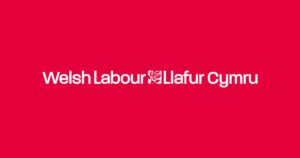
It is clear that Welsh Labour, to date, thinks that by talking to a limited range of activists they already know, they have ‘consulted’ lesbians, gay men and bisexuals. We would hope that, if they can again form the government, they think hard about the impact of their exclusionary policies.
And the other parties?
The Welsh Liberal Democrats include a brief comment specifically in relation to social care: “It will not discriminate on sexuality, gender, ethnicity, income or geography”. Like Labour, the Lib Dems favour the social construct of gender over the biological reality (and protected characteristic under EA2010) of sex, though we can be thankful that the Liberal Democrats recognise sexuality.
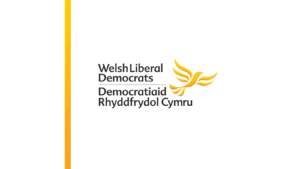
The Welsh Conservatives claim a commitment to increasing “inclusive representation on public and sponsored boards,” including ‘LGBT people’, and welcomingly commits to improving “access to mental health support for women, before, during and after pregnancy”. The Conservatives appear to be the only main party in Wales capable of distinguishing about sex, sexuality and gender, but are unlikely to be in any position of power, especially as they have ruled out coalitions or alliances with Plaid Cymru.

The Green Party in Wales include a list of ‘marginalised groups’ requiring additional support in having their needs met that includes ‘women’ and ‘LGBTIQ people’. Stories from the Green Party conference earlier this year paint the picture of a party which, far from ‘following the science’, is completely unwilling to recognise the issues and inequalities women and girls face due to their biological sex. The Green Party chillingly refers to women as ‘non-men’. We say again this matters to all of us: if sex isn’t real then how can we acknowledge homosexuality and the unique needs gay men and lesbians have?
The UKIP manifesto includes no commitments to women or LGB people, and the Reform UK party (previously the Brexit party) has not published a manifesto. There are also some new parties, including Propel (led by an MS who left Plaid) and No More Lockdowns, who appear to be supportive of the reality of sex, but seem unlikely to achieve real power.
What price freedom of thought?
We are extremely concerned at the way some elected representatives and candidates have been silenced. The #nodebate mantra is bad for democracy. No party seeking election in a liberal democracy should prevent discussion of matters which appear or do lead to a controversial conflict of rights.
Just one example is Plaid’s treatment of their MS Helen Mary Jones. Jones is a lifelong women’s right’s campaigner. Last December she retweeted Rosa Freedman’s attempt to stop trans rights campaigners making offensive comments likening women fighting for their sex-based rights to Nazis. For this support to a Jewish feminist, Jones was hounded by the vocal gender-identity lobby; leader Adam Price, instead of standing by her, forced her to issue a grovelling apology lest she be expelled from the party. It is clear where the party stands on women’s rights and indeed freedom of speech.
We also know of campaigners in other parties, mostly but not exclusively women, who have been told not to comment or required to adopt a party line with which they are deeply uncomfortable. Even as we finalise this article, we see attacks from the trans lobby on politicians in many parties for even following accounts they deem ‘offensive’.
Wales has a proud history of non-conformism, of free thought. That imagination and commitment to fairness founded the NHS. Yet today we see the people who aspire to be our national leaders shutting down any debate of basic biology. It would be funny if it were not heart-breaking.
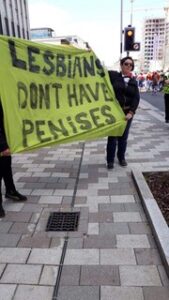
Lesbian activists protesting their exclusion from the Swansea Pride march in 2019 (Photo: Martha Gwion/GetTheLOut)
Asking the candidates
Bold claims from some of the parties in their manifestos. How has that been reflected on the doorstep? Members and supporters of LGB Alliance Cymru have posed questions to numerous candidates throughout Wales, including using the seven questions we have posted on the LGBA website at https://lgballiance.org.uk/2021/04/28/questions-for-election-candidates/.
We have also worked with allied groups, particularly Merched Cymru, a group supporting the rights of women and girls in Wales. LGBA Cymru has close ties with them as we are both grassroots organisations with limited resources, and with similar concerns around the rights of women, LGB people, and children. Several of our members have used the excellent safeguarding questions posed by Safe Schools Alliance, and the work by Gender Critical exploring the views of candidates to be Police & Crime Commissioners.
Unsurprisingly, given the silencing we’ve described, we have had limited success. Even worse, when we have directly approached candidates in our formal capacity as LGBA Cymru, we have often either been ignored or fobbed off.
Merched Cymru contacted all party leaders, asking questions related to the safeguarding of schoolchildren. In addition to this, all candidates have been contacted simply asking one question – merely if they supported the rights of women and girls under EA2010. Most candidates have ignored the question, while those that have replied have either obfuscated or flat out said ‘no’, though some have said ‘yes’ but with no additional comments or clarifications. Merched Cymru will be posting full responses to this on their website on Wednesday 5th May. See https://merchedcymru.wales for that report.
For us at LGB Alliance Cymru, we have some examples of statements/comments that have been received from candidates who have engaged with us and our supporters:
Rhys ab Owen, Plaid Cymru candidate for Cardiff West, stated that despite the claims made in his party’s manifesto, that any amendments to legislation (i.e. in relation to self-ID) in fact “…would need to be carefully thought through and take into account the special status of women’s refuges and health services… I do support trans rights and am keen to reconcile that with women’s rights, especially vulnerable women. If elected I’d be willing to listen to the concerns of all”. While working on this article, ab Owen has disappointingly made subsequent comments on Twitter advising that he in fact does not respect the sex-based rights of vulnerable women and does not support female-only hospital wards.
In contrast, David Griffin, the Green Party candidate for the same constituency, sent an email to an LGB Alliance supporter, which stated: “As the father of a daughter, I am strongly defensive of her rights, and those of all women… affording rights to transgender people does not take rights away from other people, despite what some would like to have us all believe. In the past, in the USA, black women were excluded from public toilets on the pretext of safety. Anyone who could not see this as racism were not being honest with themselves. In exactly the same way I believe that to talk about ‘safety’ as an excuse for excluding transwomen from women’s toilets is undeniably transphobic.”
We find this absolutely extraordinary. Black women are women…. adult human females. To suggest otherwise is abhorrent. Transwomen, whether they have a GRC or not, whether they have diagnosed gender dysphoria or not, whether they have had a vaginoplasty or not, are male. There is no comparison.
Helen Cunningham, Labour candidate for South Wales East, replying to the question about single sex spaces, said, “I support women’s rights as set out in the Equality Act 2010, which are rooted in the protected characteristic of sex (amongst nine protected characteristics). It is such an important piece of legislation, one that I’m proud was introduced by the last UK Labour government. I wish to see the Act upheld and fully implemented.” She has taken this view, despite the Party line and we applaud her for her principled and caring position.
Just three, widely different examples of statements from candidates. They show how much opinions vary and why it matters candidates tell us where they stand. Despite the importance of free thought, and the electorate knowing what they are voting for, there are sadly few candidate statements about our rights we can share with you.
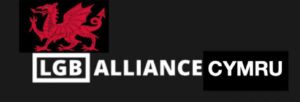
Future relationships with government
We hope in future, now that LGB Alliance has gained charitable status, that politicians will be less likely to ignore us and start to meaningfully engage with us on issues that affect our community. Just this week Judge Wide, writing for the Policy Exchange think tank, is reported to have said that “no adequate thought seems to [be] given to the difficulty of reaching beyond a limited range of academics and organisations to the full variety of academic voices, organisations, commentators and members of the public who have no organisation to speak for them … Stonewall [is being treated] more like a consultant than consultee”.
Such comments reflect our experience both before and during this election. Stonewall Cymru should not remain the only ‘go to’ organisation for issues in Wales that affect gay men, lesbians and bisexual people. We deserve a seat at the table. We represent the growing number of Welsh LGB people whose voices are drowned out by abuse. We will not be silenced. We will be heard.
You can follow LGB Alliance Cymru on Twitter




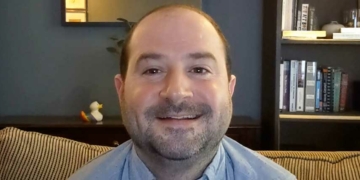
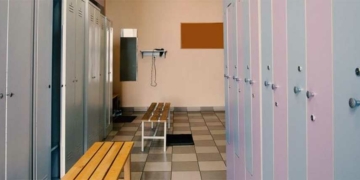

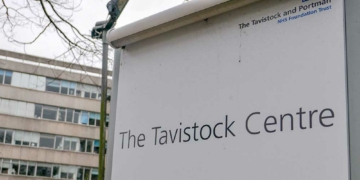









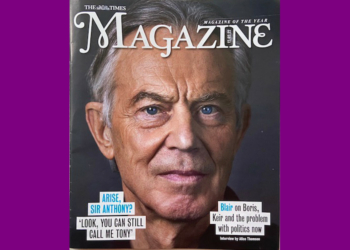
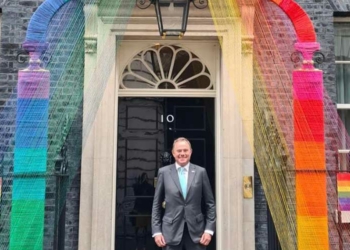





Wish I lived in South East Wales so that I could vote for Helen Cunningham, there are only weasels and Quislings standing in my area.